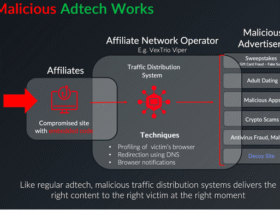Dealing with narcissistic abuse is tough, filled with hard emotions and feeling betrayed. At Reputation Return, we get how bad online attacks can hurt you. They can make you doubt yourself and lose trust. We help protect your online image and help you heal from narcissistic harm.
Getting over narcissist abuse takes kindness to yourself, setting limits, and having good friends. We know everyone’s journey is different. Our team is here to help you with care and knowledge. We focus on the online parts of abuse to help you feel in control again.
Key Takeaways
- Reputation Return offers comprehensive solutions to help individuals recover from narcissistic abuse, including online smear campaigns and digital harassment.
- The recovery process involves acknowledging the abuse, setting boundaries, and rebuilding self-trust, which can be challenging due to the complex emotions and psychological impacts of narcissistic manipulation.
- Survivors often experience feelings of guilt, shame, and struggle to detach from toxic relationships, requiring patience, self-compassion, and professional support to navigate the emotional challenges and rebuild a positive self-image.
- Reputation Return’s approach combines digital reputation management with emotional and psychological support, empowering survivors to reclaim their narrative and heal from the trauma of narcissistic abuse.
- By addressing the online aspects of narcissistic abuse, Reputation Return aims to restore a sense of control and help survivors regain the confidence to move forward with their lives.
Understanding Narcissistic Abuse and Its Impact on Mental Health
Narcissistic abuse can deeply affect a person’s mental health. Those with narcissistic personality disorder crave admiration and show little empathy. They use emotional manipulation, gaslighting, and ignore boundaries to control others and protect their ego.
Recognizing Signs of Narcissistic Manipulation
People abused by narcissists often feel constantly criticized and doubt their reality. They may also give up their own needs to please the narcissist. These actions can make them question their self-worth and trust their instincts.
Common Psychological Effects of Narcissistic Abuse
Narcissistic abuse can have severe long-term effects. It can lead to anxiety, depression, and even post-traumatic stress. Survivors may feel unworthy, struggle in relationships, and doubt themselves. They might also experience physical symptoms like sleep problems and mood swings.
The Role of Digital Harassment in Modern Narcissistic Abuse
In today’s world, narcissists use online harassment and reputation-damaging tactics to harm others. Survivors may feel numb and detached. They struggle to heal from the trauma caused by digital platforms and social media.
“Recovery from narcissistic abuse is possible, but it can be a long and challenging journey. Seeking professional help and implementing self-care practices are crucial steps in the healing process.”
Breaking Free from the Cycle of Narcissistic Control
Getting out of a narcissistic control situation is a big step towards healing. It means setting firm boundaries and sometimes a no-contact rule. This space helps survivors start to heal and resist going back to the abuse.
It’s also key to trust your instincts again and fight the negative beliefs the narcissist made you believe. This helps in rebuilding self-esteem.
Leaving the relationship can be hard, like grieving a loss. But, with the right help and plans, you can take back your power. You can start a new, healthier life.
- Set clear boundaries to keep your emotional and physical health safe.
- Try a no-contact rule with the narcissist if you can, to avoid more harm.
- Work on changing the negative beliefs and boost your self-esteem.
- Get support from people you trust, like friends, family, or therapists, to deal with your feelings and heal.
- Take care of yourself with daily affirmations, exercise, and inspiring content to build your emotional strength.
“The greatest prison people live in is the fear of what other people think.” – David Icke
Breaking free from narcissistic control is tough but vital for taking back your life. By setting boundaries, rebuilding self-esteem, and finding support, survivors can end the cycle of abuse. They can start a healing and empowering journey.
Narcissist Abuse Recovery Tips: Essential Steps for Healing
Recovering from narcissistic abuse is a journey that needs a wide range of steps. Setting clear boundaries, building a strong support network, and practicing self-care are key. These actions help people regain their power and start rebuilding their lives after being hurt by narcissistic manipulation.
Establishing No-Contact Boundaries
Creating and keeping clear boundaries with the abuser is the first step to healing. This might mean cutting off all contact, like social media or text messages. Stepping away from the narcissist’s influence is vital for self-protection and starting the healing process.
Building a Support Network
Having a network of trusted people, like friends or family, is crucial during recovery. These relationships offer a safe space, emotional support, and a sense of belonging. By reconnecting with positive influences and seeking professional help, individuals can regain their self-worth and find the courage to move forward.
Implementing Self-Care Practices
Practicing self-care is vital for healing from narcissist attacks. This can include therapy, exercise, mindfulness, and hobbies that bring joy. By focusing on their well-being, individuals can build resilience, manage stress, and develop ways to cope with challenging emotions during recovery.
Overcoming narcissistic abuse is a journey, but by following these steps, individuals can start to take back their lives. They can rebuild their self-confidence and create a brighter, healthier future.
Rebuilding Your Online Presence After Narcissistic Smear Campaigns
Getting over a narcissistic smear campaign is tough, but Reputation Return is here to help. Our team helps survivors rebuild their online image and take back their story.
First, you need to see how much damage was done. This might mean keeping records of messages, fights, and public statements. These can be useful in legal fights or to clear your name.
Then, find support from people you trust, like family and friends. They can offer the support and understanding you need. It’s also important to set clear boundaries with your ex, which might mean limiting or cutting off contact.
It’s crucial not to get into public arguments or respond to provocations. This helps you avoid looking bad. Learning about narcissistic behaviors can also help you spot and deal with your ex’s tactics.
At Reputation Return, we know how vital rebuilding trust online is for recovery. We use strategies to fight false stories and create positive content that beats out the bad.
“Rebuilding one’s online presence after a narcissistic smear campaign is a crucial step in reclaiming one’s identity and moving forward with confidence.”
We provide online reputation management services to help you take back your digital space and rebuild trust in your brand. Reach out for a free, confidential chat to talk about your needs and how we can help.
Empowering Strategies for Digital Harassment Recovery
Recovering from a narcissistic smear campaign needs a strong plan. Here are some strategies to help:
- Document and preserve evidence of the narcissist’s actions
- Seek support from a trusted network of family and friends
- Set firm boundaries to protect yourself from further harm
- Resist engaging in public disputes or responding to provocations
- Educate yourself on narcissistic behaviors to better understand the manipulation tactics
By following these steps, you can take back your online presence and rebuild trust. Remember, you’re not alone. With the right support and strategies, you can overcome this and move forward with confidence.
Professional Support and Therapeutic Approaches
Getting over narcissistic abuse needs help from experts and special treatments. Cognitive Behavioral Therapy (CBT) is a top choice. It helps change bad thinking patterns and find ways to cope better. Other therapies like Eye Movement Desensitization and Reprocessing (EMDR) are also key. They help deal with traumatic memories and lessen the pain.
Finding the Right Mental Health Professional
Finding a therapist who knows about narcissistic abuse is key. They can create a plan just for you. Reputation Return can help find therapists near you.
Different Types of Therapy for Narcissistic Abuse Recovery
Besides CBT, other therapies can help too. Trauma-Focused Cognitive Behavioral Therapy (TF-CBT) is for kids and teens who’ve been through trauma. It helps them feel better emotionally.
Prolonged Exposure (PE) therapy helps face and deal with scary memories. EMDR helps process traumatic events. Dialectical Behavioral Therapy (DBT) teaches skills for managing feelings and dealing with tough situations.
The Benefits of Online Support Groups
Online support groups are also very helpful. They offer a place to share and learn from others. It’s a safe space to get support and feel less alone.
FAQ
What comprehensive solutions does Reputation Return offer for individuals recovering from narcissistic abuse?
Reputation Return helps protect people from online attacks and digital bullying. These are common tactics used by narcissists. The recovery journey starts with recognizing the abuse, setting clear boundaries, and rebuilding trust in oneself.
What are the common signs of narcissistic abuse and its psychological effects?
Signs of narcissistic abuse include emotional manipulation and gaslighting. It also involves crossing personal boundaries. These actions can lead to anxiety, depression, and a loss of self-worth.
How can individuals break free from the cycle of narcissistic control?
To break free, setting firm boundaries is key. Sometimes, a no-contact rule is necessary. It helps in healing and prevents going back to the abuse. Survivors must learn to trust themselves, challenge negative thoughts, and regain their self-esteem.
What are the key steps for recovering from narcissistic abuse?
Recovery involves setting and keeping no-contact boundaries. It also means building a strong support network. Consistent self-care, like therapy and exercise, is also important.
How can Reputation Return help rebuild an online presence after a narcissistic smear campaign?
Reputation Return helps by assessing digital damage and creating strategies to counter false information. They also work on creating positive content to counteract the negative. This is vital for personal and professional recovery online.
What types of professional support are available for recovering from narcissistic abuse?
Professional help, like Cognitive Behavioral Therapy (CBT) and Eye Movement Desensitization and Reprocessing (EMDR), is essential. It helps change negative thought patterns and build coping skills. Online support groups provide a safe space to share and learn from others.















